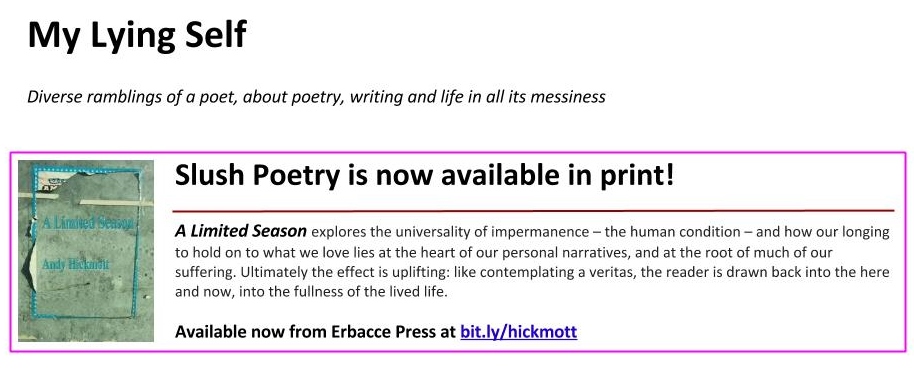A friend contacted me yesterday (in fairness, he contacted quite a few other people too) and asked me whether I could provide a poem in support of Bradley Manning, the poor sod being put through the nail-studded wringer that is the US justice system for leaking military secrets via those sterling folk (he winks) at WikiLeaks. I said I'll see what I can do. After all, I don't like to say 'no' to friends who ask nicely, not even to ones who come over as rather too earnest on issues I care little about.
But why didn't I care, or at least not care a lot? I think it's a question of perspective. Bradley Manning is said to have leaked material that he knew was classified, and knew that by doing so he would be breaking the law, and that as a private in the US Army he would be prosecuted through a court martial, and given the nature of the material he supposedly leaked, that his prosecution would be dissimilar to, say, a six month sabbatical on Hawaii. So he did something unlawful, he knew it was unlawful, he was caught and he is paying the price. What's to care about?
That's one way of looking at it. There is another. Take
he did something unlawful, and change the last word to
wrong. See what I did there? Move from a legal viewpoint to a
moral one and the Bradley Manning case looks very different. Suddenly we can see how someone in Private Manning's situation - who is exposed to the reality of a military-political campaign that differs markedly from that being shown to the citizens of the United States and Britain (Bradley is a citizen of both; he was born in Wales); who witnesses the suffering inflicted on, and endured, by the people of Iraq and Afghanistan; and who became horrified at the deliberate misinformation of the folks back home by both the military and their political masters - might feel morally obligated to expose what he sees as crimes against humanity.
It seems to me that there are many wrong reasons to protest about the treatment of Bradley Manning: because he's one of your own, because he stuck it to the pricks in uniform, because he struck a blow for liberty (and you happen to believe in the power of crystal healing), because other people are protesting about it, because democracy has had its day, or because you believe in a Utopia where there are no secrets, no wars, no rulers.
But there is also a right reason: that maybe what he did was right. And if so, he has been abysmally mistreated, vilified when in truth he is a hero. I do not know if this is true. But if it is, I hope justice eventually prevails.
And that is what the poem I submitted,
I am not a protester, says.
